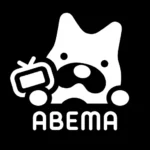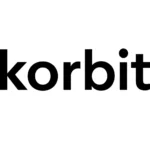Collaborative robots are emerging as a pivotal solution to address workforce shortages and reduce labor costs in the food industry.
Major corporations are recognizing the potential of the collaborative robot sector, dedicating significant resources to its development. Doosan Robotics recently secured a spot on the KOSPI and, concurrently, Hanwha Robotics marked its official launch. Both companies are actively pursuing new technologies and market expansion strategies.
Doosan Robotics, renowned for its noodle-cooking and coffee-brewing robots, is taking a bold step into the realm of chicken preparation. The company recently entered into a memorandum of understanding (MOU) with Kyochon F&B, the operator of Kyochon Chicken, to introduce a collaborative robot frying solution. This innovative endeavor will kick off with the installation of the first robot at Kyochon F&B headquarters in Osan-si, Gyeonggi-do, in October, with plans to scale up to approximately 1,370 chicken stores.
Meanwhile, Hanwha Robotics is not shying away from the competitive landscape. The corporation is setting its sights on dominating not only the domestic collaborative robot market, but also the global arena. Hanwha Robotics, a new entity, has been established, encompassing collaborative robots, automated guided vehicles (AGV), and autonomous mobile robots (AMR). Hanwha Corporation retains a 68% stake, while Hotels & Resorts holds the remaining 32%. Notably, Kim Dong-seon, the strategic executive of Hanwha Hotels & Resorts, is spearheading this strategic initiative.
The strategic vision for Hanwha Robotics extends beyond robotics, with plans to integrate this technology into various facets of the business, including food preparation, facility management, and security operations. A recent MOU with Wave Lifestyle Tech, specializing in kitchen automation services for the restaurant industry, underscores the commitment to advancing this agenda. In addition to refining existing industrial collaborative robots, Hanwha Robotics is poised to launch products incorporating cutting-edge autonomous driving technology, including building management robots.
Anticipating rapid growth, the industry predicts the collaborative robot market to more than double by 2025, from about $2.5 billion this year to an estimated $5.1 billion. Leading players like Samsung Electronics, Hyundai Motor Company, LG Electronics, and HD Hyundai are intensifying their efforts to bolster talent acquisition and technological capabilities in the robot market. Many of these companies are expected to showcase their latest advancements at ‘CES 2024,’ the world’s premier IT and home appliance exhibition scheduled for January 2024 in Las Vegas.
While experts laud the significant investments by large corporations in the robot sector, they emphasize the importance of nurturing a robust domestic robot industry ecosystem. They encourage these companies to champion the utilization of locally-produced components, invest in workforce development, and implement prudent management strategies to ensure sustainable growth. Additionally, addressing potential job displacement due to increased robot integration remains a critical consideration.




